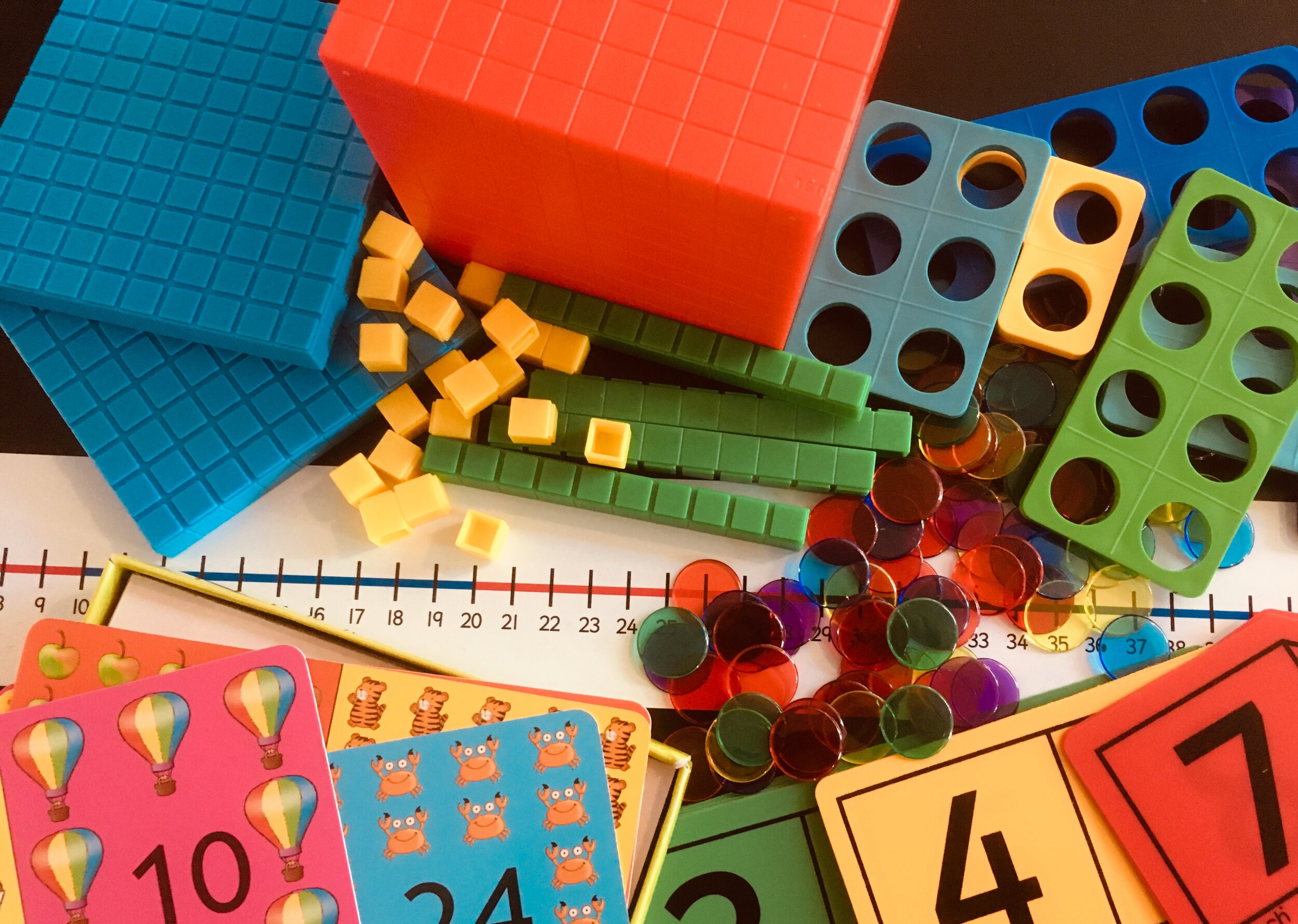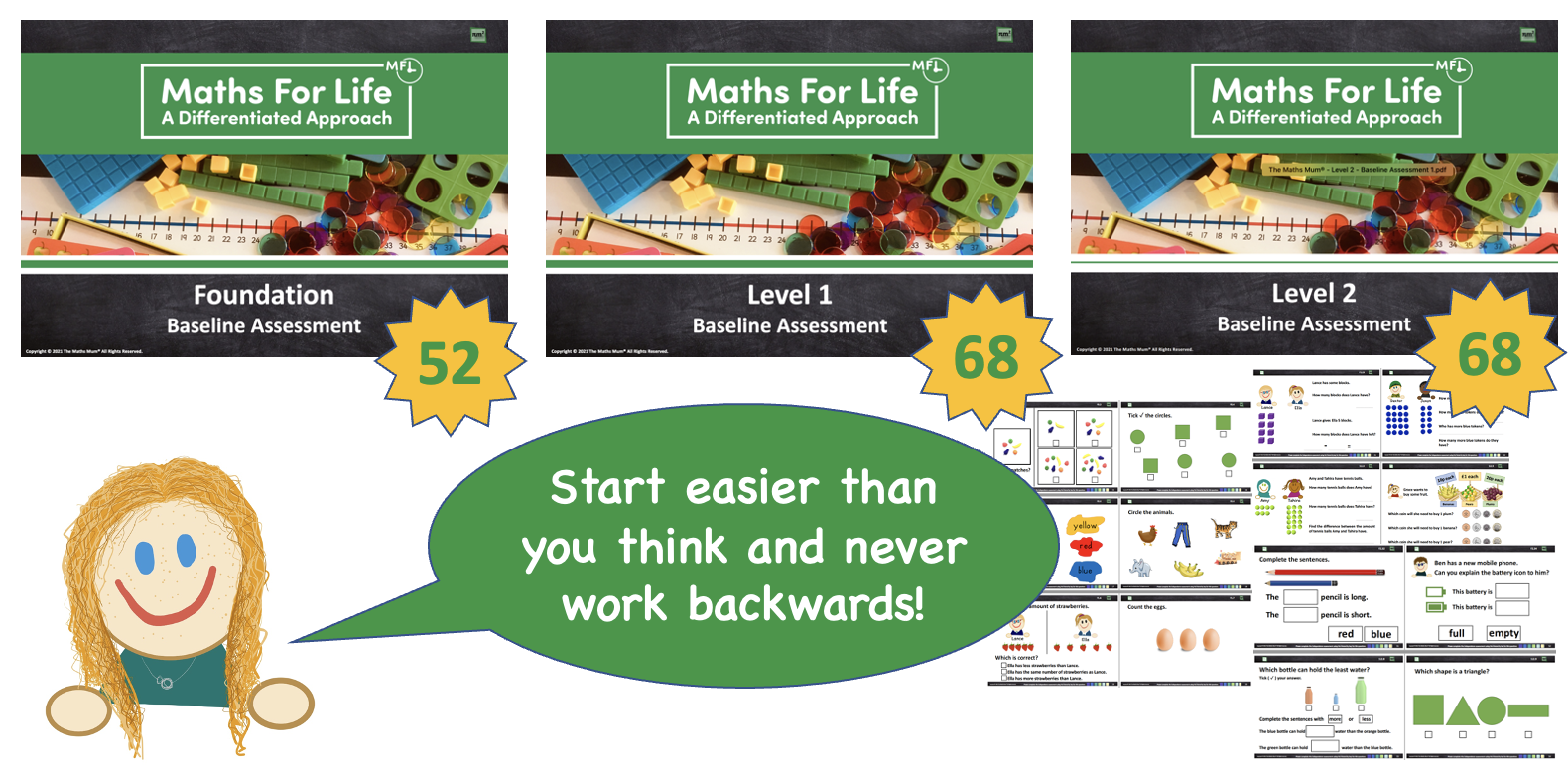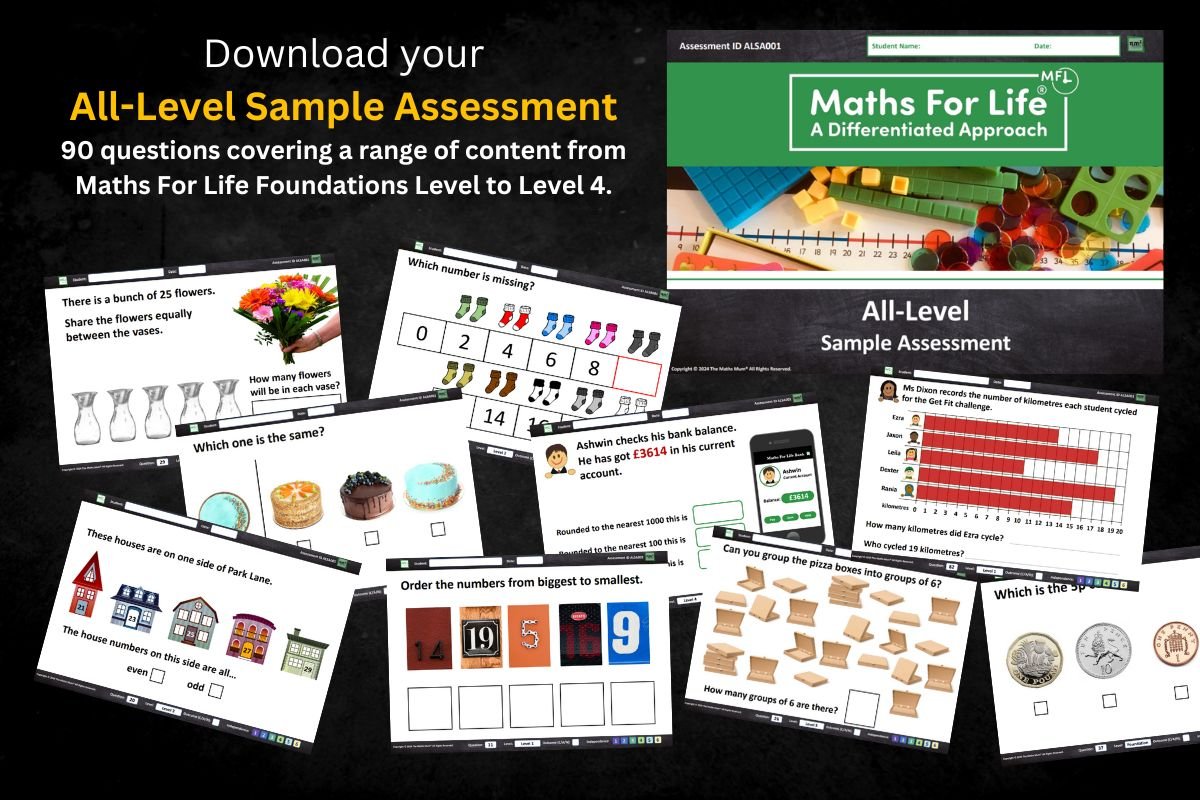Research to Date
Given that Karen, the Founder of the Maths For Life programme, is a Chemical Engineer, it has always been important to her that the programme not only delivers for the students but continually evolves based on feedback, evidence and research. She quickly established that research grants in the education space are hard to come by, and quite often need an existing level of research / proof of concept before you are even eligible to apply. It was the classic chicken and egg - develop programme or do research. But Karen being Karen, she decided she would do both in parallel.
The Catalyst for Assessments
Jos Smith - the Chair of Down’s Syndrome Oxford, a charity supporting families of individuals with Down syndrome - was a key member of the initial Maths For Life proof of concept. Her involvement led to the charity funding a one-year pilot programme for a number of their member families. Kicking off in February 2021, it was a groundbreaking pilot that included an initial baseline assessment, access to all the Maths For Life resources as well as 1:1 support from Karen. Progress and attainment was evaluated at 6 months and 12 months.
As part of this programme, a set of assessments were developed to monitor baseline attainment at the beginning and record progress against this at 6 months and at 12 months. This allowed an evidence based review of the effectiveness of the Maths For Life programme and its impact on attainment.
Project Baseline
With the set of assessments now created, it was decided to widen the pool of students being assessed and recorded to build up a more comprehensive picture of attainment for students with additional learning needs; and allow some comparison between those that follow the Maths For Life programme and a set of controls who don’t. This was named Project Baseline. There were initially three baseline assessments - Foundations, Level 1, and Level 2. They consisted of between 50 and 70 questions and measured the level of understanding of a mathematical concept, and the extent to which a student could use that concept independently. The Maths For Life ‘Hierarchy of Independence’ provided a standardised scale of how much ‘help’ students were given by the supervising educator.
This is a video of the slide deck presenting the results of Project Baseline. There is no sound.
Down’s Syndrome Oxford Pilot
Starting in February 2021, we collaborated with the charity group to run a year-long pilot to assess the impact of a parent-led Maths For Life programme on students ranging from age 4 to 18, attending both mainstream and specialist settings.
Out of the 23 students who completed the programme, 100% demonstrated an improvement in overall mathematical attainment and increased independence.
The pilot rolled into an ongoing programme supported by the charity, with many of the original students in their 4th year by 2024. Support has been extended to more students and schools.
“These are the results from a parent-led programme; now we get to see what happens when the programme is delivered in school as well.”
Jos Smith, Chair of Down’s Syndrome Oxford
Independent Research
In 2022, a pilot study on the effectiveness of the Maths For Life programme for children with Down syndrome was completed with University College Dublin, University of Surrey and University College London. Professor Jo Van Herwegen, Professor of Developmental Psychology and Education and Dr Katie Gilligan-Lee, Assistant Professor, School of Psychology joined forces with Karen to explore the potential of the Maths For Life programme.
THE CONCLUSION:
“This pilot study provides the first evidence on the efficacy of the Maths For Life programme for improving mathematics skills in children with DS. The findings from parent administration of the programme suggest that use of the intervention improves mathematical independence, evidence that lays foundations for further testing this programme in schools. Improving children’s independent application of mathematics is vital for everyday living and independence. This pilot study provides initial evidence that the Maths For Life programme may offer one avenue for increasing mathematical independence in those with Down syndrome.”
Oxfordshire County Council Pilot
The success of the Down’s Syndrome Oxford pilot came to the attention of the Oxfordshire County Council SEND team. In early 2023, they agreed to fund a county-wide school-based pilot. The goal: to roll out the Maths For Life programme to the wider community to help understand the benefits it can bring to students with a more comprehensive range of additional learning needs.
Against a backdrop of torrential rain, flooding, transport disruption and the closure of the venue, we somehow managed to host a hugely successful launch of the Maths For Life pilot with Oxfordshire County Council on 20th June 2023. The energy in the room was amazing, with lots of positive support for the pilot. This support translated to 48 confirmed schools participating and over 250 students identified to start the programme in September 2023.
And on Friday 21st July 2023, the minimum number of parental consent forms needed was achieved to enable the independent research by Professor Jo Van Herwegen, University College London, and Dr Katie Gilligan-Lee, University College Dublin to move forward.
There are currently over 300 students in 45 different schools in Oxford engaged with the Maths For Life programme. Initial assessments were completed in Autumn term 2023 and the progress assessments are planned for Summer term 2024.
We hope to be in a position to analyse and publish results in the later half of 2024.
All-Level Sample Assessment
Once the Oxfordshire County Council pilot launched, the decision was taken to suspend ‘Project Baseline’. The baseline assessments however remained free and available to download - as an assessment or as a free example of the Maths For Life content.
As these assessments are not compatible with the suite of Self-Service Assessments that are part of the subscription, in March 2024 it was decided to remove them. They have been replaced by a new ‘All-Level Sample Assessment’ that is available to all those who join the free Maths For Life community.
This assessment is designed to get a quick overview of a student’s ability and establish the correct level to start the Maths For Life programme. It is also a good example of the style and quality of the resources provided within the paid subscription. It is recommended that once the correct level to start the programme is established, a full self-service assessment at that level be completed to understand the exact profile of the student. The full suite of self-service assessments are available via the paid subscription.








